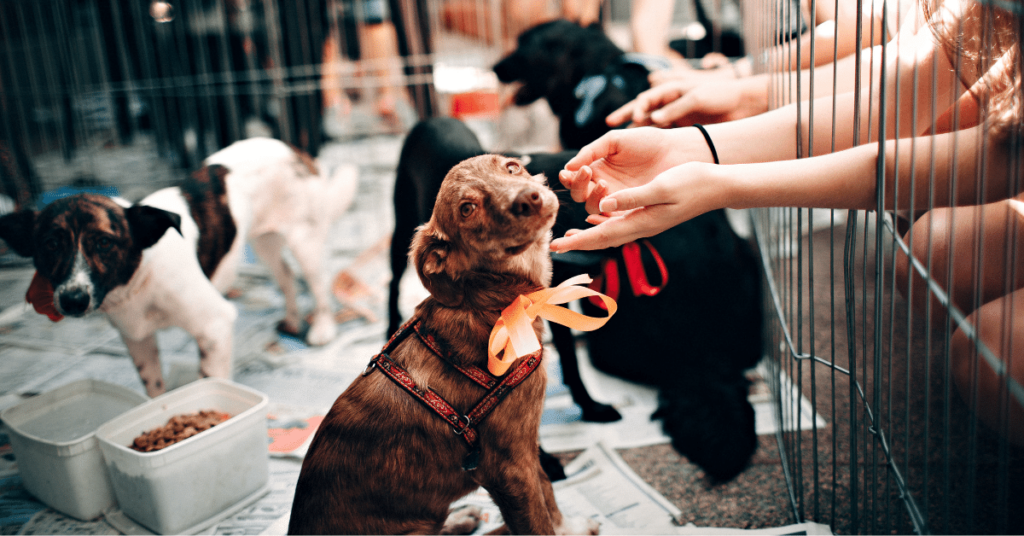Understanding Adoption Fees and Expenses
Are you considering adopting a pet but unsure about the cost? Understanding adoption fees and expenses is an essential step in the process of welcoming a new furry friend into your home. In this guide, we will break down the various costs associated with pet adoption and help you better prepare for the financial aspects of bringing home a new family member.
Why Are There Adoption Fees?
You may wonder why there are adoption fees in the first place. It’s important to know that these fees are not simply a way for shelters or rescue organizations to make money. Adoption fees serve several purposes:
Covering Basic Expenses: Adoption fees help cover the basic expenses incurred by shelters or rescue organizations, such as food, vaccinations, medical care, and spaying/neutering.
Supporting Animal Welfare: By charging adoption fees, organizations can continue to provide care for other animals in need and ensure their overall well-being.Screening Potential Adopters: Adoption fees act as a screening tool to ensure that potential adopters are financially capable of providing a safe and loving home for a pet.
What Do Adoption Fees Include?
Adoption fees vary depending on the specific organization and the type of pet you are adopting. However, in most cases, adoption fees typically include the following:
Vaccinations: Your adopted pet will likely have received necessary vaccinations, protecting them from common diseases.
Spaying/Neutering: Many shelters and rescue organizations ensure that all adopted pets are spayed or neutered before they go to their new homes.
Microchipping: Microchipping is a common practice that helps in the identification and safe recovery of a lost pet. It is often included in the adoption fee.Medical Care: Adoption fees may also include the cost of initial medical care, such as deworming and flea/tick treatments.
Understanding Additional Expenses
While adoption fees cover the initial costs, it’s essential to remember that there are ongoing expenses to consider when adopting a pet. Here are some additional expenses that you may encounter:
Food and Supplies: Your furry friend will need a regular supply of food, treats, and other essential supplies such as a bed, toys, leash, collar, and litter box (if adopting a cat).
Veterinary Care: Regular veterinary check-ups, vaccinations, flea and tick prevention, and any necessary medications should be factored into your budget.Training and Behavior: Training classes, especially for puppies and certain breeds, can help provide structure and ensure a well-behaved pet. Additionally, behavior consultations or professional training may be necessary if your pet develops behavioral issues.Grooming: Some pets require regular grooming, such as brushing, bathing, and professional grooming services. These costs can vary depending on the size and breed of your pet.Pet Insurance: Considering pet insurance can help alleviate unexpected veterinary costs. It’s worth researching and finding a plan that suits both your pet’s needs and your budget.
Budgeting for Pet Adoption
Now that you have an idea of the potential adoption fees and ongoing expenses, it’s time to budget accordingly. Here are some steps to help you plan financially for your new furry family member:
Research: Research local shelters, rescue organizations, and pet adoption websites to get an idea of the adoption fees in your area. Understand what is included in the fees and compare the offerings.
Create a Pet Budget: Take into account the estimated monthly expenses, including food, supplies, veterinary care, grooming, and any additional costs specific to your pet’s breed or health needs. Make sure to adjust your budget as your pet ages.
Consider Financial Assistance: Some organizations offer financial assistance programs for pet owners experiencing financial constraints. Look into these programs to see if you are eligible for any supportPlan for Emergency Expenses: Set aside an emergency fund for unexpected veterinary expenses. Having a safety net can provide peace of mind and ensure that your pet receives the necessary care in case of emergencies.
In Conclusion
Adopting a pet is a rewarding experience, but it’s essential to understand the associated costs. Adoption fees help cover basic expenses and support animal welfare, ensuring that all pets receive proper care. Additionally, budgeting for ongoing expenses is crucial to provide the best possible life for your new furry friend. By understanding the fees and expenses involved, you can welcome a pet into your home with confidence and financial preparedness.







